Michael Brown schools a bunch of dudes on CNN about what the Bible actually teaches on marriage. (More at APOLOGETICS THUG LIFE)
Author: Papa Giorgio
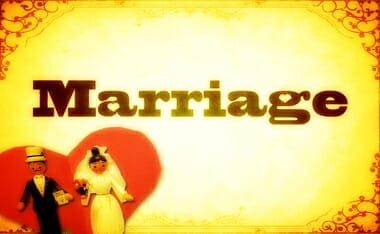
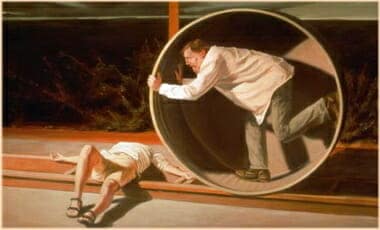
Do We Have Free Will?
Do humans have free will or are our decisions entirely products of chemistry, physics, and genetics? Is there a difference between the brain and the mind? Could a neuroscientist with enough knowledge of our brains know every decision that we’ll make? The answers to these questions cut to the heart of what it means to be human.

Some “Orthodoxy” Quotes | G.K. Chsterton
I will add to this over time.
Dennis Prager always speaks to a whole generation being bored. This quote from Chesterton reminded me of that idea… that is, how one approaches/views life offers meaning or boredom: …oddities only strike ordinary people. Oddities do not strike odd people. This is why ordinary people have a much more exciting time; while odd people are always complaining of the dulness of life. This is also why the new novels die so quickly, and why the old fairy tales endure for ever. The old fairy tale makes the hero a normal human boy; it is his adventures that are startling; they startle him because he is normal. But in the modern psychological novel the hero is abnormal; the centre is not central. Hence the fiercest adventures fail to affect him adequately, and the book is monotonous. You can make a story out of a hero among dragons; but not out of a dragon among dragons. The fairy tale discusses what a sane man will do in a mad world. The sober realistic novel of to-day discusses what an essential lunatic will do in a dull world. G.K. Chesterton, Orthodoxy (San Francisco, CA: Ignatius Press, 1995), 20.
“But what we suffer from to-day is humility in the wrong place. Modesty has moved from the organ of ambition. Modesty has settled upon the organ of conviction; where it was never meant to be. A man was meant to be doubtful about himself, but undoubting about truth; this has been exactly reversed.” G.K. Chesterton, Orthodoxy (San Francisco, CA: Ignatius Press, 1995), 36-37.
Take first the more obvious case of materialism. As an explanation of the world, materialism has a sort of insane simplicity. It has just the quality of the madman’s argument; we have at once the sense of it covering everything and the sense of it leaving everything out. Contemplate some able and sincere materialist, as, for instance, Mr. McCabe, and you will have exactly this unique sensation. He understands everything, and everything does not seem worth understanding. His cosmos may be complete in every rivet and cog-wheel, but still his cosmos is smaller than our world. Somehow his scheme, like the lucid scheme of the madman, seems unconscious of the alien energies and the large indifference of the earth; it is not thinking of the real things of the earth, of fighting peoples or proud mothers, or first love or fear upon the sea. The earth is so very large, and the cosmos is so very small. The cosmos is about the smallest hole that a man can hide his head in. It must be understood that I am not now discussing the relation of these creeds to truth; but, for the present, solely their relation to health. Later in the argument I hope to attack the question of objective verity; here I speak only of a phenomenon of psychology. I do not for the present attempt to prove to Haeckel[13] that materialism is untrue, any more than I attempted to prove to the man who thought he was Christ that he was labouring under an error. I merely remark here on the fact that both cases have the same kind of completeness and the same kind of incompleteness. You can explain a man’s detention at Hanwell by an indifferent public by saying that it is the crucifixion of a god of whom the world is not worthy. The explanation does explain. Similarly you may explain the order in the universe by saying that all things, even the souls of men, are leaves inevitably unfolding on an utterly unconscious tree— the blind destiny of matter. The explanation does explain, though not, of course, so completely as the madman’s. But the point here is that the normal human mind not only objects to both, but feels to both the same objection. Its approximate statement is that if the man in Hanwell is the real God, he is not much of a god. And, similarly, if the cosmos of the materialist is the real cosmos, it is not much of a cosmos. The thing has shrunk. The deity is less divine than many men; and (according to Haeckel) the whole of life is something much more grey, narrow, and trivial than many separate aspects of it. The parts seem greater than the whole. For we must remember that the materialist philosophy (whether true or not) is certainly much more limiting than any religion. In one sense, of course, all intelligent ideas are narrow. They cannot be broader than themselves. A Christian is only restricted in the same sense that an atheist is restricted. He cannot think Christianity false and continue to be a Christian; and the atheist cannot think atheism false and continue to be an atheist. But as it happens, there is a very special sense in which materialism has more restrictions than spiritualism. Mr. McCabe thinks me a slave because I am not allowed to believe in determinism. I think Mr. McCabe a slave because he is not Allowed to believe in fairies. But if we examine the two vetoes we shall see that his is really much more of a pure veto than mine. The Christian is quite free to believe that there is a considerable amount of settled order and inevitable development in the universe. But the materialist is not allowed to admit into his spotless machine the slightest speck of spiritualism or miracle. Poor Mr. McCabe is not allowed to retain even the tiniest imp, though it might be hiding in a pimpernel. The Christian admits that the universe is manifold and even miscellaneous, just as a sane man knows that he is complex. The sane man knows that he has a touch of the beast, a touch of the devil, a touch of the saint, a touch of the citizen. Nay, the really sane man knows that he has a touch of the madman. But the materialist’s world is quite simple and solid, just as the madman is quite sure he is sane. The materialist is sure that history has been simply and solely a chain of causation, just as the interesting person before mentioned is quite sure that he is simply and solely a chicken. Materialists and madmen never have doubts. Spiritual doctrines do not actually limit the mind as do materialistic denials. Even if I believe in immortality I need not think about it. But if I disbelieve in immortality I must not think about it. In the first case the road is open and I can go as far as I like; in the second the road is shut. But the case is even stronger, and the parallel with madness is yet more strange. For it was our case against the exhaustive and logical theory of the lunatic that, right or wrong, it gradually destroyed his humanity. Now it is the charge against the main deductions of the materialist that, right or wrong, they gradually destroy his humanity; I do not mean only kindness, I mean hope, courage, poetry, initiative, all that is human. For instance, when materialism leads men to complete fatalism (as it generally does), it is quite idle to pretend that it is in any sense a liberating force. It is absurd to say that you are especially advancing freedom when you only use free thought to destroy free will. The determinists come to bind, not to loose. They may well call their law the “chain” of causation. It is the worst chain that ever fettered a human being. You may use the language of liberty, if you like, about materialistic teaching, but it is obvious that this is just as inapplicable to it as a whole as the same language when applied to a man locked up in a mad-house… [13] Ernst Haeckel (1834-1919), a German biologist, monistic philosopher and evolutionary theorist who believed that he had proved that there was no immortal soul, free will or personal God. G.K. Chesterton, Orthodoxy (San Francisco, CA: Ignatius Press, 1995), 27-30.
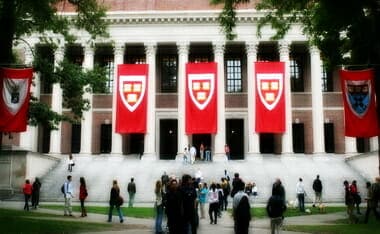
Harvard’s Racism Coming To An End?
(MOONBATTERY hat-tip)
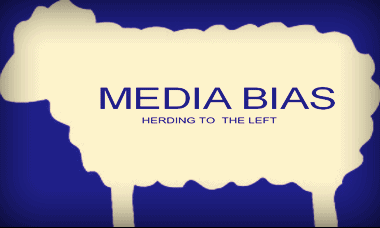
Former NY Times Chief Calls Out Media’s Bias
…“Though Baquet said publicly he didn’t want the Times to be the opposition party, his news pages were unmistakably anti-Trump,” Abramson writes, adding that she believes the same is true of the Washington Post. “Some headlines contained raw opinion, as did some of the stories that were labeled as news analysis.”
What’s more, she says, citing legendary 20th century publisher Adolph Ochs, “the more anti-Trump the Times was perceived to be, the more it was mistrusted for being biased. Ochs’s vow to cover the news without fear or favor sounded like an impossible promise in such a polarized environment.”
Abramson describes a generational split at the Times, with younger staffers, many of them in digital jobs, favoring an unrestrained assault on the presidency. “The more ‘woke’ staff thought that urgent times called for urgent measures; the dangers of Trump’s presidency obviated the old standards,” she writes….

Why Obamacare Doesn’t Work As Promised
President Obama made many promises to the American people regarding health care reform — but the Affordable Care Act was destined to fail. Why? Lanhee Chen of the Hoover Institute explains why government-run health care is not the answer.

How the Reformation Shaped Your World
Can one man change the world? The life and work of Martin Luther prove the answer to that question is an unqualified, “yes.” Stephen Cornils of the Wartburg Theological Seminary details the rebellion that fractured a centuries-old religion and changed the course of history.
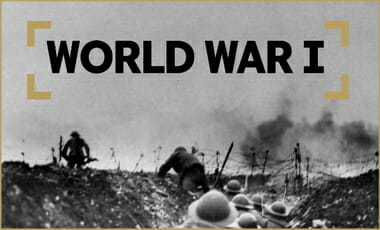
WWI: The War That Changed Everything
Think of all the horrors of the 20th Century: The Holocaust. The Bolshevik Revolution. The Cold War. Were it not for the assassination of one Austro-Hungarian archduke in 1914, none of those events would have ever happened. Historian and author Andrew Roberts explains.

The Science Is Settled, So Says Chuck Todd
Dennis Prager plays Chuck Todd and then takes 2019’s first disagreeing call. Dennis starts out the year on point. The WASHINGTON TIMES has a story on Chuck Todd,
NBC News has decided that climate change is no longer an issue that has two sides.
Sunday’s episode of “Meet the Press” with Chuck Todd featured an hour long panel with lawmakers and scientists about the consequences of climate change. But at the start, Mr. Todd said his show is “not going to give time to climate deniers” and went on to inaccurately characterize the nature of the climate debate.
“Just as important as what we are going to do is what we’re not going to do,” he said. “We’re not going to debate climate change, the existence of it. The earth is getting hotter, and human activity is a major cause. Period.”
“We’re not going to give time to climate deniers,” Mr. Todd added. “The science is settled even if political opinion is not.”
[….]
“We need to stop covering the debate and start covering the story so that people see that this is real, and so that politicians take a more pragmatic approach and find solutions that are actually achievable,” Mr. Curbelo said about the one-sided discussion……..
Also, if you go to my main CLIMATE LINK PAGE — you will find these helpful topics related to the caller and some of the show:
✦ 22 (Two Examples of CO2 Brainwash)
✦ CLIMATE “CONSENSUS”
✦ ECO-FASCISTS! LEADING THE WAY TO DEMOCRAT UTOPIAN IDEALS
✦ Global Warming Good For Island Growth
✦ Hurricane/Tornado Myths ~ The Big Fizzle
✦ SERIES (Part 4) ~ CO2 Not The Demon It Is Made Out To Be
✦ Top MIT Climatologist Slams Consensus
✦ Wind Power Polluting the Beauty and Cleanliness Of Our World With Renewable Energy
✦ Wind and Solar More Harmful To Environment Than Helpful
CLIMATE DISPATCH has the best “skinny” on the matter (emphasis in the original, except last sentence):
The Closing of the American Mind was Allan Bloom’s groundbreaking critique of “absolute understanding” in academia and the way that it undermines critical thinking.
If Bloom were with us today, we could imagine him writing a sequel devoted to the way the climate change industry has sought to silence dissent.
Chuck Todd gave a stunning example of the phenomenon this morning in his introduction of a Meet the Press special edition on climate change.
Todd quite literally announced that dissent would not be tolerated. Here was Todd:
“Just as important as what we are going to do this hour is what we’re not going to do. We’re not going to debate climate change, the existence of it. The Earth is getting hotter, and human activity is a major cause. Period. We’re not going to give time to climate deniers. The science is settled, even if political opinion is not.”
Quick: someone check—are we still in the USA? Or did “democracy die in darkness” and certain positions are verboten from public speech?….
[BOOM!]
See also: Climate-Change Activists Are the Real Science Deniers
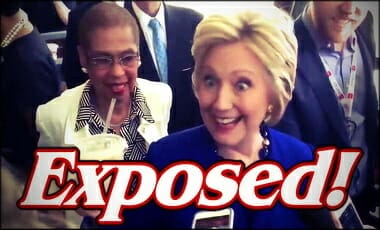
Evidence Supports That Hillary Lied Under Oath
JUDICIAL WATCH has gotten documents to support the July 2018 comments by Rand Paul that Hillary lied under oath. GATEWAY PUNDIT has the skinny:
Hillary Clinton denied she knew about the weapons shipments during public testimony (under oath) in early 2013 after the deadly Benghazi terrorist attack.
Senator Rand Paul questioned Hillary Clinton about this gun running program back in January 2013 during her testimony on the Benghazi terrorist attack.
In late July 2016 Julian Assange told Democracy Now that the Wikileaks DNC emails contains information on the weapons shipments to Syria……..

Peer-Review Issues | Sharyl Attkinsson
See some other posts:
- When “Peer-Reviewed” Is Used To Hold the Line
- The Problem With Peer-Review
- Peer-Reviewed Scientific Literature Building a Compelling Case for ID
Sharyl: What’s your view of how much we can trust the articles that appear in these prestigious medical journals?
Dr. Howard Pomeranz: One always has to be aware of the possibility that somebody who is an author or coauthor or someone who is consulted to help support the research was a paid consultant by the pharmaceutical industry and that’s not always apparent.
Dr. Howard Pomeranz is a neuro-ophthalmologist at the Hofstra Northwell School of Medicine. He’s authored dozens of journal articles and says many studies are written by academic researchers fraught with conflicts of interest.
Sharyl: In some cases, it sounds like it’s nothing more than advertising by an employee that works for a drug company.
Pomeranz: It is and I think that’s often the way you have to look at it.
Angell: I came to the New England Journal of Medicine in 1979. Starting about then was when you saw the drug companies assert more and more control until finally they over the next couple of decades, they began to treat the researchers as hired hands. They would design the research themselves. You know you can do a lot of mischief in how you design a trial. Or we’ll test this drug and we’ll tell you whether it can be published or not, and so if it’s a positive study, it’s published, if it’s a negative study, it’ll never see the light of day.
That happened in 2000. The makers of an experimental AIDS vaccine threatened to sue Dr. James Kahn, their lead researcher at the University of California San Francisco for $7 million, to keep him from publishing study results showing the vaccine didn’t work.
Angell: An official of the company said something to the effect of, ‘we have put $30 million into that study, we have our rights,’ or something like that.
Angell says as she applied due diligence to the many studies submitted to the New England Journal of Medicine, it started to feel like a losing battle.
Angell: I would call up and say, okay, you’ve shown that your drug is pretty good. But there’s not a single side effect. Any drug that does anything is going to have some side effects. And I had people say, ‘well the sponsor won’t let me’. And so, I became to be extremely distrustful of most of the research that was published. We did our very best, we often rejected things because it was clearly biased, but anything we rejected always ended up in another journal.
Angell left the New England Journal of Medicine in 2000, but kept her eye on the journal industry, which she says resisted meaningful efforts to rein in conflicts of interest. In 2009, she wrote an article that famously declared “It is simply no longer possible to believe much of the clinical research that is published.”
Sharyl: What would you say is the state of the journal landscape today and the New England Journal of Medicine, particularly?
Angell: I think that that role that the New England Journal used to fill, one was the role of being skeptical, the other was the role of caring about the ethics of the whole system. I think the journal has given that up, the New England Journal of Medicine has given that up.
The New England Journal of Medicine declined our interview requests, but told us “since 1984 we have requested author disclosures.” In 2009, the journal says it helped pioneer a universal form requesting “that authors report all relevant financial conflicts” during the most recent three years. And it posts the form and study sponsorship. Besides Dr. Angell, another powerful voice is also weighing in. The current Editor in Chief of the British journal Lancet, Dr. Richard Horton, wrote a scathing editorial saying: “Much of the scientific literature, perhaps half, may simply be untrue; science has taken a turn towards darkness.”
Annie Waldman: Be skeptical about everything. Be skeptical about every study that you read, whether it’s in the New England Journal of Medicine or some journal you’ve never heard of.
Annie Waldman writes for the nonprofit ProPublica.
Another article referencing issues with peer-review comes via THE BLAZE:
A peer-reviewed academic journal was recently duped in a hilarious way.
Two academics, Peter Boghossian and James Lindsay, recently used pen names to submit an academic paper to a peer-reviewed academic journal to expose the absurdity of modern gender studies by arguing that the male reproductive organ known as the penis is a “social construct.”
The 3,000-word paper was titled, “The Conceptual Penis As A Social Construct,” and was submitted, and published, to the “Cogent Social Sciences” academic journal in its May edition. Lindsay and Boghossian cited 20 sources in their paper, many of which they said they made up or never read….
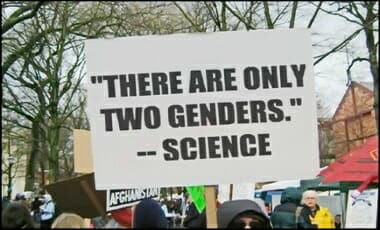
XX and XY Is 6th Grade Science
As you watch the below unfold… you will note that the person thinks elementary schools teach fascism.
- (Kirk) “…There are two genders…”
- (SJW) “…That is a 6th grade understanding of science…”
- (Kirk) “…So what you learn in 6th grade becomes less true as you get older. Like gravity becomes less true?…. Newton’s third law becomes less true?…”
SERIOUSLY WATCH THIS!
According to college leftists… biological facts are now fascist!
College campuses have become ideological battlefields.
We have to FIGHT against activist professors who would rather push an agenda than teach facts
Fact: there are only TWO genders
— Charlie Kirk (@charliekirk11) January 1, 2019
